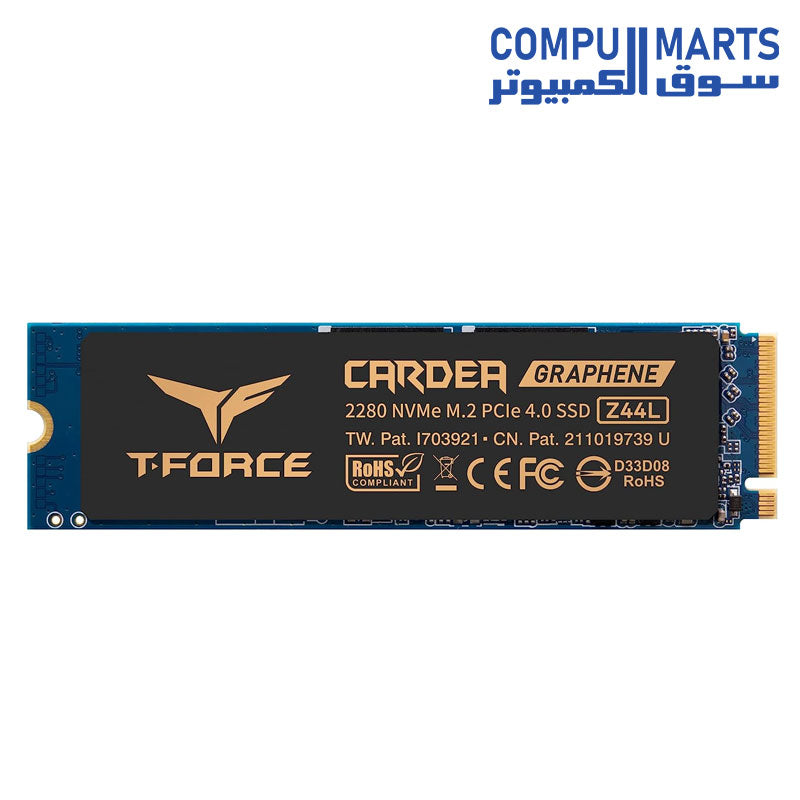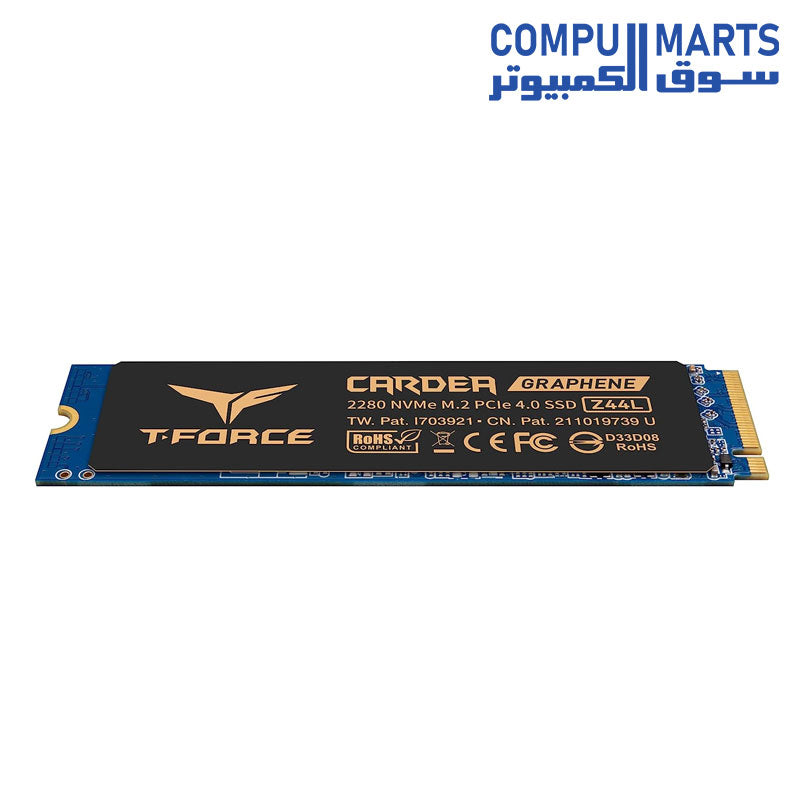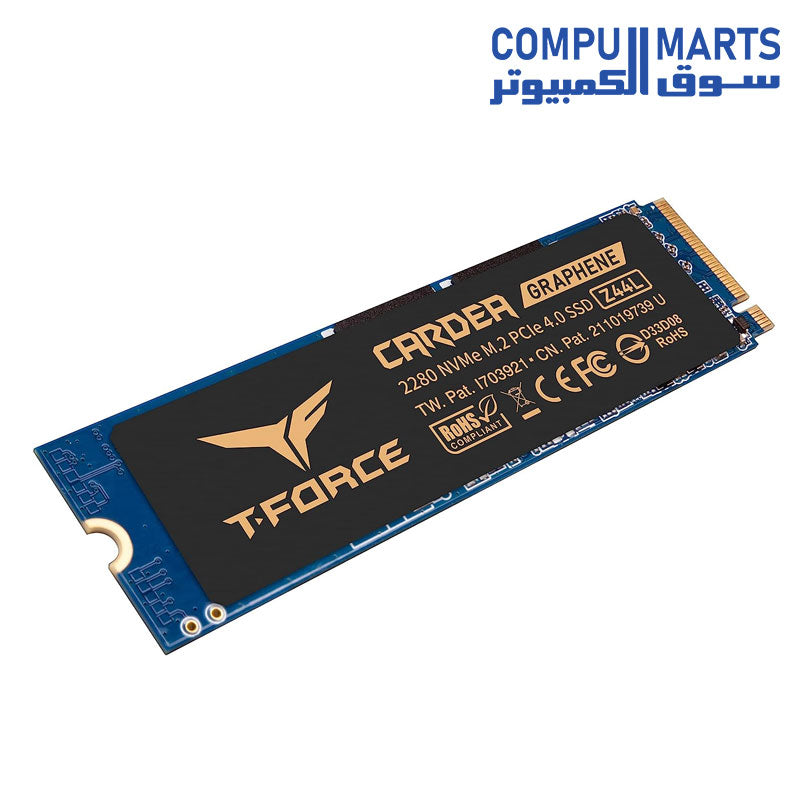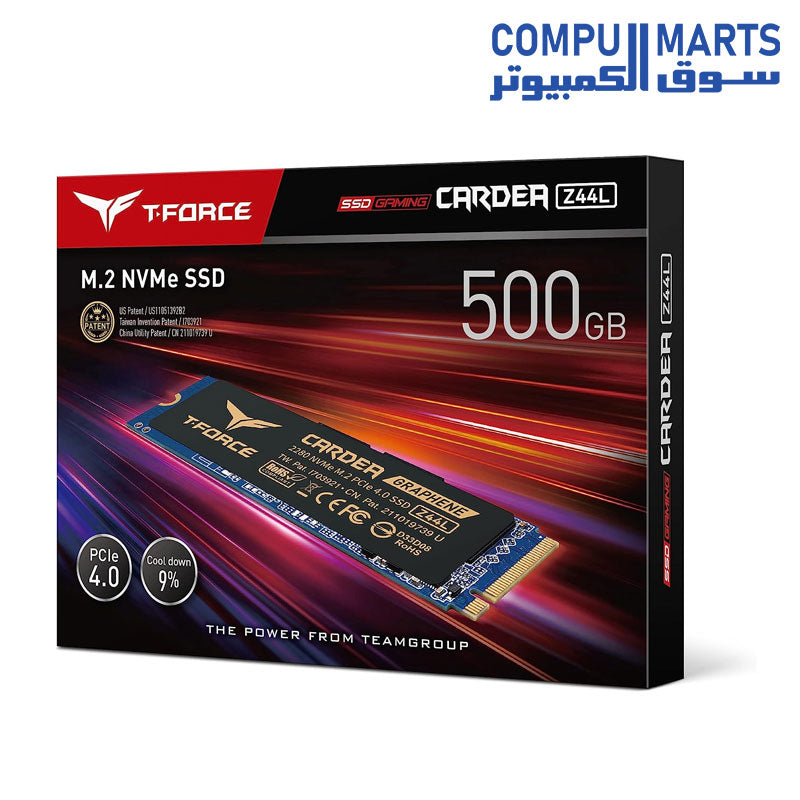TEAMGROUP | SKU:
TEAMGROUP T-Force CARDEA Zero Z44L 500GB Support SLC Cache with Graphene Copper Foil 3D NAND TLC NVMe PCIe Gen4 x4 M.2 2280 Gaming Internal SSD Read/Write 3,300/2,400 MB/s TM8FPL500G0C127
Sale price
2,573.00 EGP
Regular price
2,999.00 EGP
Unit price
/
Unavailable
Sold out
14% off
Sign up to be the first to know when it's here
Description
Description
TEAMGROUP T-Force CARDEA Zero Z44L 500GB Support SLC Cache with Graphene Copper Foil 3D NAND TLC NVMe PCIe Gen4 x4 M.2 2280
Z44
-
Enjoy the read/write performance of PCIe Gen4x4
-
Patented ultra-thin graphene heat spreader
-
Not only faster but also more stable and durable
-
Supports the latest NVMe standard
-
SSD smart monitoring software
-
Five-year warranty offers you peace of mind
-
United States Patent (number:US11051392B2)
-
Taiwan Invention Patent (number: I703921)
-
China Utility Patent (number: CN 211019739 U)
Model |
TEAM CARDEA Z44 |
|||
Interface |
PCIe Gen4x4 with NVMe |
|||
Capacity |
250GB / 500GB / 1TB/ 2TB[2] |
|||
Voltage |
DC +3.3V |
|||
Operation Temperature |
0˚C ~ 70˚C |
|||
Storage Temperature |
-40˚C ~ 85˚C |
|||
DRAM Cache |
NO |
|||
Terabyte Written (TBW) |
250GB – 150TBW500GB - 300TBW1TB - 600TBW2TB - 1200TBW[3] |
|||
Performance |
Crystal Disk Mark:250GB Read/Write: up to 3300/1400 MB/s500GB Read/Write: up to 3300/2400 MB/s1TB Read/Write: up to 3500/3000 MB/s2TB Read/Write: up to 3500/3200 MB/s[1] |
IOPS:250GB Read/Write: 132K/985K IOPS Max500GB Read/Write: 142K/357K IOPS Max1TB Read/Write: 263K/382K IOPS Max2TB Read/Write: 380K/550K IOPS Max[1] |
||
Weight |
7g (PCBA) |
|||
Dimensions |
80.0(L) x 22.0(W) x 3.7(H) mm |
|||
Humidity |
RH 90% under 40°C (operational) |
|||
Vibration |
80Hz~2,000Hz/20G |
|||
Shock |
1,500G/0.5ms |
|||
MTBF |
3,000,000 hours |
|||
Operating System |
System Requirements:
|
|||
-
PCIe 4.0 Gen4x4 Phison E19T controller with read/write up to 3500/3000 MB/s. Supports the latest NVMe standard
-
Ultra-thin graphene heat spreader. Supports SLC Cache technology and smart algorithm management mechanism to help ensure operational efficiency and maximize the performance of SSD









